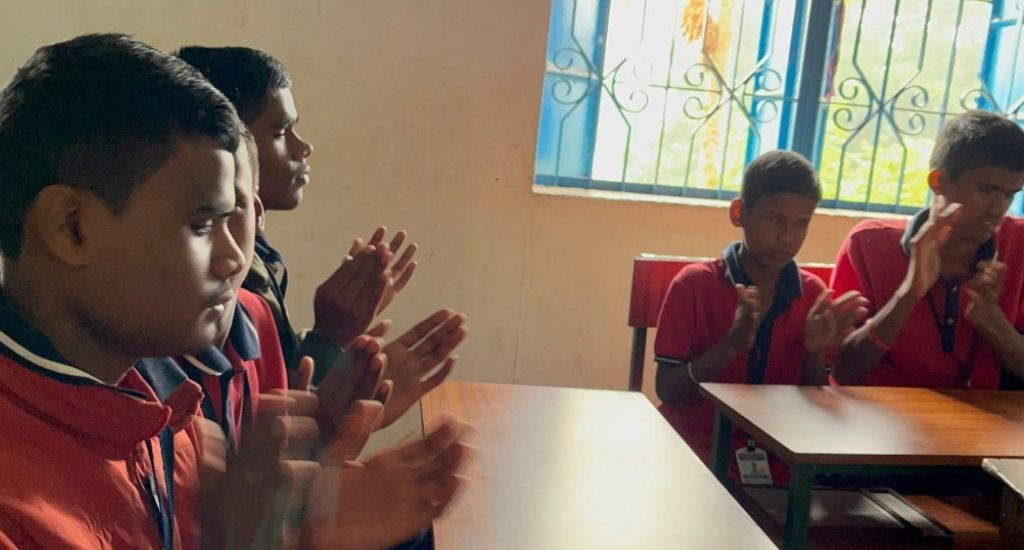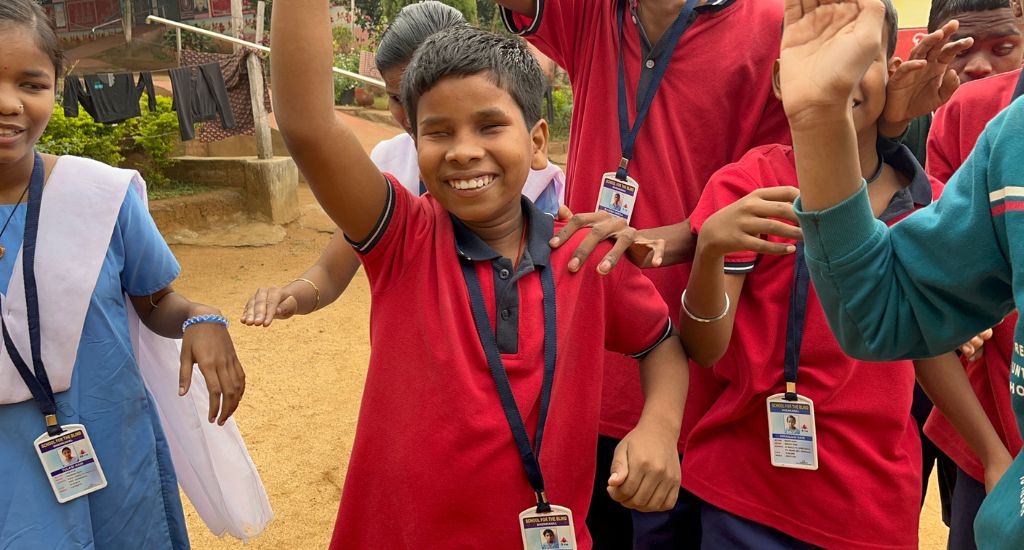Odisha school bridges gap between disability and ability
Teachers at Nandini Devi school for deaf, mute and blind students in Dhenkanal prove that with love and dedication, every obstacle can be transformed into an opportunity.
Teachers at Nandini Devi school for deaf, mute and blind students in Dhenkanal prove that with love and dedication, every obstacle can be transformed into an opportunity.
A poignant message graces the walls of Nandini Devi School in the Deulasahi neighbourhood of Odisha’s Dhenkanal town, echoing the aspirations of its unique community: “Know me for my ability and not disability.”
What sets this special school for deaf, mute and blind students apart is the boundless dedication of its seven teachers, including Minati Panda and Ratnakar Pradhan, both visually impaired, who have been guiding lights for over three decades.
The institute has been a beacon of hope and learning since its establishment in 1986 by an NGO, the Akhyam Kalyan Samiti, with the foundation for a full-fledged school laid in 1990 by Nandini Satpathy, the first woman chief minister of Odisha.

From its humble beginnings with 20 deaf and blind students, Nandini Devi School has evolved into a nurturing home for 90 students, each with their own journey of overcoming challenges.
Minati Panda, an assistant teacher, reflected on her triumphant journey: “Everyone has to struggle. Since childhood, I was blind, I couldn’t see anything, but because of my family’s cooperation, I’m standing here on my own.”
Her tearful recollection carried a powerful message to society. “People should not consider them (students) a burden. They should come forward and help in uplifting their lives,” she said.
Watch: Pad perfect – championing menstrual hygiene
The teachers’ commitment exemplifies Nandini Devi School’s slogan: “Aame akhyama nuhe sakhyama (we are not disabled but able).”

In a world that often perceives vulnerability as a burden, the teachers stand resilient, shaping their students to face the world with strength and determination.
“Somewhere, each individual is disabled, as not everyone can do all things. We should stop considering these children as disabled and channel their potential for the common good,” said teacher Manoj Ranjan Panigrahy.
Beyond providing education, Nandini Devi School offers a holistic living experience, including residential facilities and three nutritious meals daily, all funded independently by the Akhyam Kalyan Samiti.

Students hail from various districts of Odisha, mainly from the nearby districts of Keonjhar, Angul and Cuttack, creating a melting pot of cultures and backgrounds. Alongside the standard academic curriculum, they receive training in skills like chalk making, sewing, and phenyl production, fostering self-sustainability.
Nandini Devi School’s music room resonates with the sounds of harmonium and dholak, guided by Ratnakar Pradhan, the music teacher. Throughout the school, voices unite in chanting bhajans of Lord Jagannath, believed to heal wounds and symbolise hope.
Also Read: Check out Sarakapatna’s vibrant ‘Hastatanta’ sarees
Pratima Raut, a class 9 student, expressed gratitude for the support. “We are provided with games like Ludo, chess, carrom board and are taught subjects like English and maths. With the support I’m getting here, I aspire to be a music teacher,” she said.

The impact of the school extends far beyond its walls, as former students contribute as educators in Dhenkanal. For instance, Subrakant Pani is a lecturer at Dhenkanal Autonomous College, Narmada Gadnayak is a teacher at Laxmidhar Municipality High School, and Srabani Patra teaches at the Government Girls High School.
The lead image at the top shows Nandini Devi School for deaf, dumb and blind children in Dhenkanal, Odisha. (Photo by Alok Prasad Mohapatra)
Devashish Biswal, specialises in captivating human interest stories on gender, tribal life, education and culture; and harbours aspirations of becoming a radio jockey alongside following his musical pursuits. He is also a Village Square Fellow 2023.